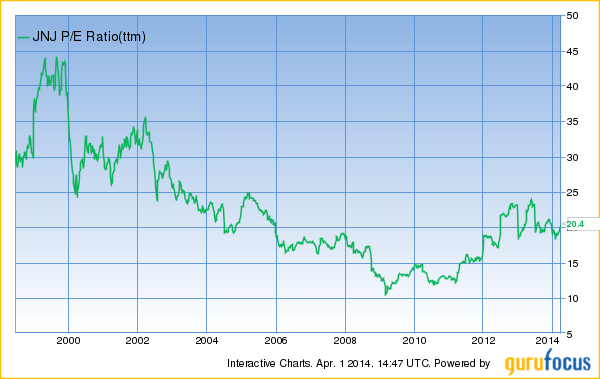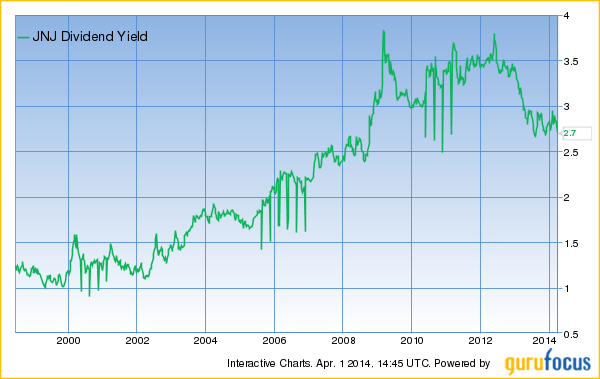Medical and consumer products giant Johnson & Johnson (NYSE:JNJ) made a big splash this week by agreeing to sell its Ortho-Clinical Diagnostics business to The Carlyle Group (NASDAQ:CG). The diagnostics business, which JNJ founded in 1937, makes blood tests that screen for disease and contributed about 2.6% of JNJ’s revenue last year.
Carlyle was certainly enthusiastic about the deal. Managing Director Stephen Wise said, “We have been focused on the diagnostics industry for many years given its attractive growth prospects, driven by the crucial role it plays in health care decision-making.”
I understand Carlyle’s rationale for the acquisition. The aging of America gives massive tailwinds to virtually the entire medical sector, and blood testing would seem far safer and less subject to political meddling or Medicare and insurance cuts than, say, cutting-edge medical devices or prescription pharmaceuticals.
But I’m left scratching my head as to why Johnson & Johnson would want to part with this business.
It’s not like Johnson & Johnson needs the money. The company has no net debt, and about 10% of the market cap of JNJ stock is cash in the bank.
J&J didn’t release much in the way of details as to its motivation for selling. My best guess is that, as a relatively small unit responsible for a tiny sliver of JNJ’s revenues, management thought it would make sense to focus its energies on the business lines that have the biggest impact on the income statement: pharmaceuticals, medical devices and consumer products.
To put these product lines in perspective, JNJ operates the eighth-largest pharmaceuticals business and the sixth-largest biotechnology business in the world. Its medical devices and diagnostics business is the largest in the world, and its consumer health products business — which sells everything from Band-Aid bandages to Neutrogena skin care products — is the sixth-largest consumer healthcare business in the world.
Suffice it to say, JNJ is a big player in every business line it chooses to enter.
What to Do With JNJ Stock
With Johnson & Johnson in the news — and with JNJ stock continuing its march to $100 per share — is JNJ stock a buy?
Johnson & Johnson is a 128-year-old company that has raised its dividend for 51 consecutive years and counting. It’s also one of only four American companies that sports a AAA-rated credit rating. JNJ is the very definition of a high-quality, blue-chip stock.
Let’s take a look at the numbers:
JNJ stock isn’t particularly cheap, trading at 20 times trailing earnings and 16 times expected forward earnings. But then, given JNJ’s quality and stability, this is a stock that should—and generally does—trade at a slight premium to the broader market. JNJ stock sported a much higher multiple for most of the past 15 years (Figure 1).

And while its dividend yield, at 2.7%, is lower than the average of recent years (Figure 2), it’s still high by the company’s standards and significantly higher than the market average. It’s also about in line with the current 10-year Treasury yield.

So, is JNJ a buy? I think it is, but only with the right expectations going into it.
For instance, I own JNJ shares in a handful of dividend-focused portfolios, and I continue to reinvest my dividends. I consider Johnson & Johnson a great core dividend stock.
But I wouldn’t buy JNJ expecting it to massively outperform the market at current prices. At JNJ’s current price, you’re paying a premium for quality, and that’s OK. But I would probably wait for a modest 10%-15% pullback before making any major new purchases.
Disclosure: Charles Lewis Sizemore, CFA, is the editor of Macro Trend Investor and chief investment officer of the investment firm Sizemore Capital Management.
